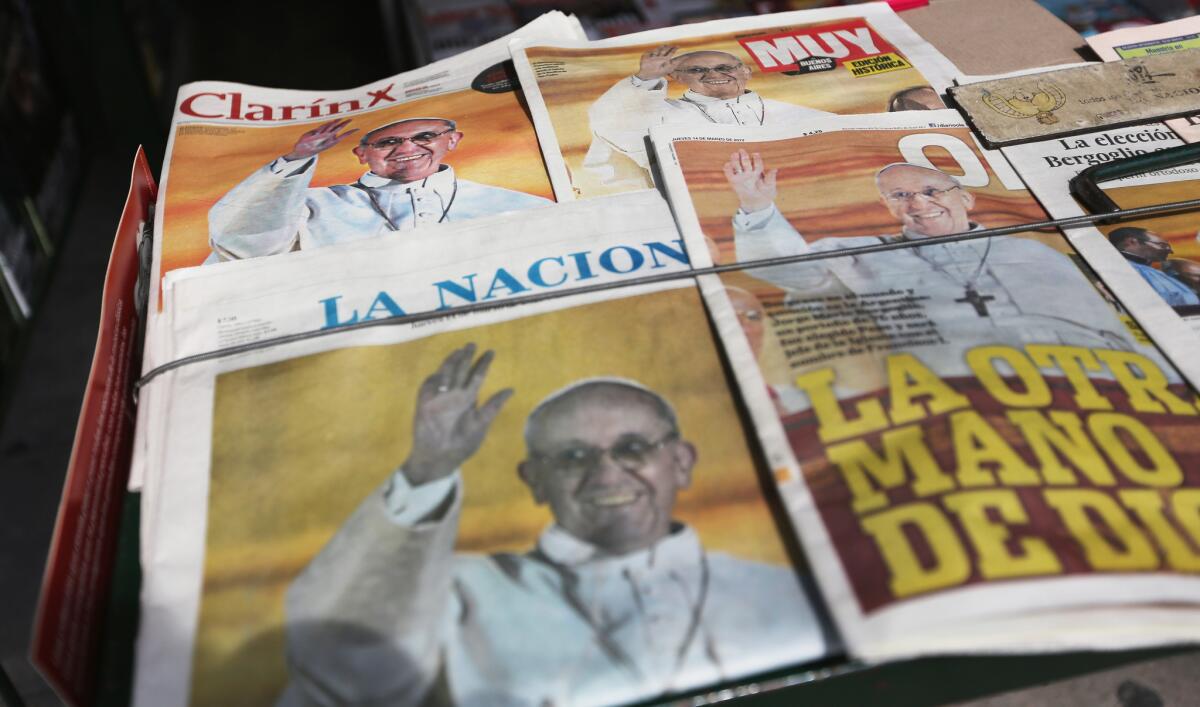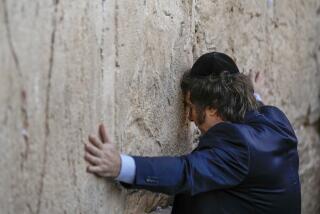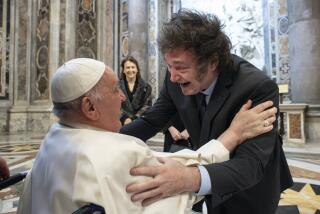Pope Francis’ hometown: Proud and sometimes profane

- Share via
BUENOS AIRES — For the last two days here “it’s been all pope, everything pope. In the streets, in the cafes, on the corners, everyone’s talking about the pope,” said Fernando Vignoles, a thirtysomething cab driver and longtime resident of Argentina’s capital.
From the freeway late Thursday night, Vignoles proudly pointed into the darkness to the outline of a handsome old church where the man now known as Pope Francis, the former archbishop of Buenos Aires, had presided over his confirmation ceremony as a young man.
“He’s a good guy, a really good guy,” he said. “Everyone’s very proud here.”
But Vignoles, in many ways, is indicative of the challenge that Francis faced here as archbishop: while porteños, as Buenos Aires residents are known, overwhelmingly consider themselves Roman Catholic, many fewer are regular churchgoers. Vignoles says that with four kids to raise and 18-hour days to work, he doesn’t have time to fit in visits to Mass.
The new pope’s hometown, a metropolitan area of roughly 12 million people, is famously old-school and New World, a city of cutting-edge literature, 21st century Bohemian, a city of tradition with a taste for the new, at once conservative and licentious.
On Friday morning, the opinion-making Buenos Aires newspaper Clarin was offering a free pope poster with every copy, with a picture of Francis, looking serious, arms piously crossed, set in front of the sky-blue and white of the Argentine flag. Readers were also free to peruse the fashion supplement, Woman, chock with racy lingerie ads and pouting models, high-end watches and Italian fashion designers.
The headlines on the front of the daily recounted the new pope’s promises to live a more austere life, without elegant shoes, a popemobile or a golden cross. A smaller headline pointed readers to a short essay by Adolfo Perez Esquivel, the Nobel-prize winning Argentine peace activist and critic of the right-wing military government that brutally cracked down on opponents, disappearing thousands.
It was one of many voices that are chiming throughout the city, judging or castigating or absolving Jorge Mario Bergoglio for his actions, or failure to act, during those difficult times. As leader of the nation’s Jesuits, and later archbishop of Buenos Aires, Bergoglio was staunchly opposed to the leftist liberation theology movement that was then in vogue among many Latin American priests. Some have claimed that Bergoglio failed to protect two priests who were kidnapped and tortured by the military in 1976.
“I don’t consider that Jorge Bergoglio had acted in complicity with the dictatorship, but I think that he lacked courage to accompany us in our struggle for human rights in the most difficult moments,” Perez Esquivel wrote.
RELATED:
Pope Francis to cardinals: Beware pessimism
Pope Francis, Diego Maradona and the ‘Hand of God’
Pope Francis: A Jesuit in an office he isn’t supposed to seek
More to Read
Sign up for Essential California
The most important California stories and recommendations in your inbox every morning.
You may occasionally receive promotional content from the Los Angeles Times.










